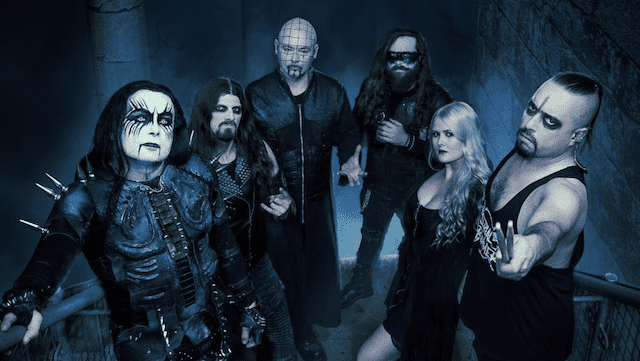The obsessive pursuit of perfectionism and the price of greatness in a dying art form.
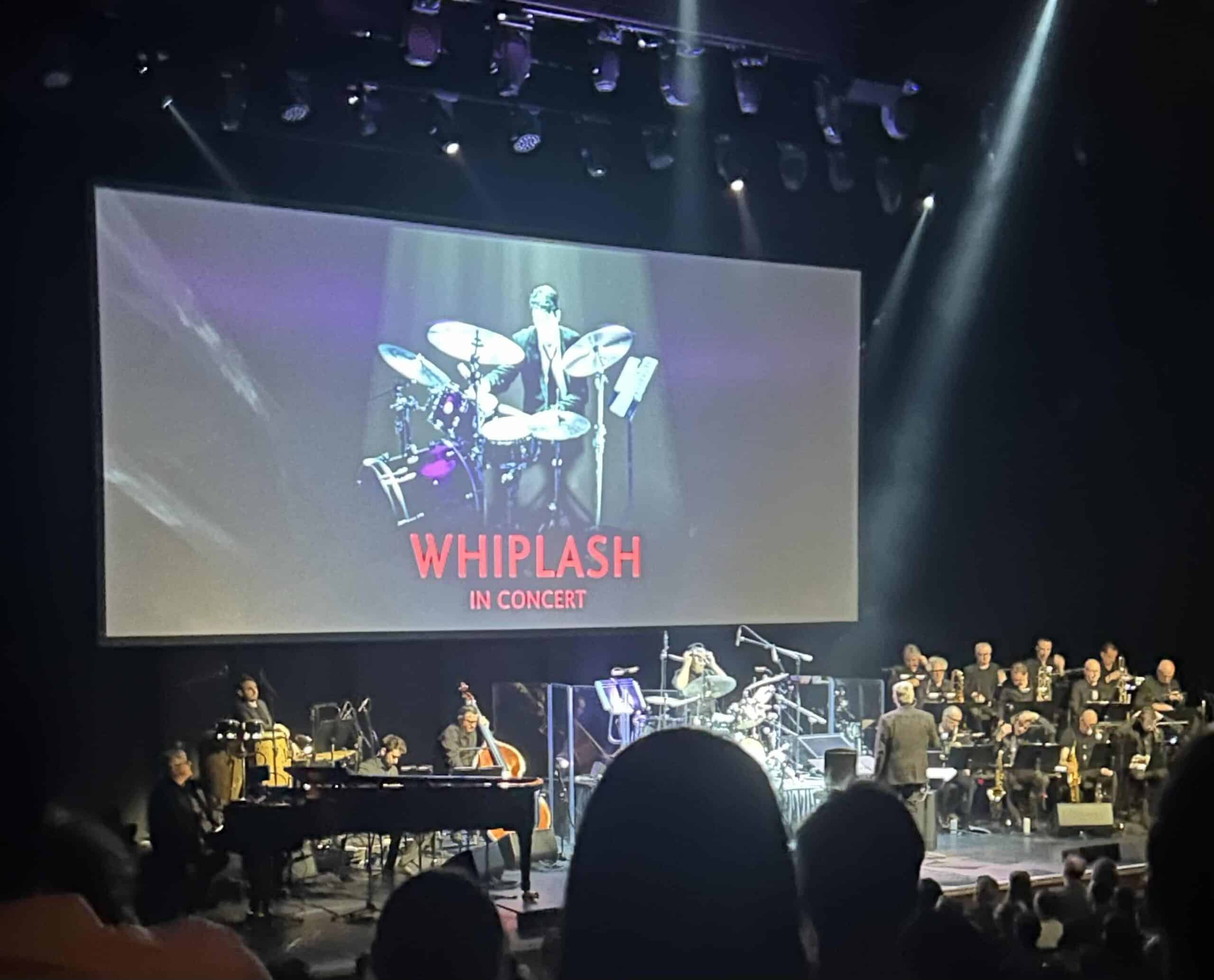
What many, including myself, would consider one of the most outstanding films of the past decade. Director Damien Chazelle and composer Justin Hurwitz recurring collaborative effort on their film Whiplash (2014) was screened in the iconic Barbican Theatre in the City of London, but this time in the form of a concert, with a live performance by Benoît Sourisse and André Charlier’s exceptional Multiquarium Big Band, as part of the Summer Jazz Series hosted by the Barbican Theatre.
I had the pleasure of experiencing this film in concert where the orchestra band and lead drummer André Charlier face the exact same challenges Andrew (Miles Teller) undergoes throughout the film; tracking every movement and beat with absolute precision and intensity, displaying the potential of films in concert as an art form. Even the many errors that Andrew and the other aspiring musicians make throughout the film are accounted for, which the band deliberately adjusts to attune to the story’s intentions and the cast’s flaws, making it an especially exhilarating feature performance. Intentionally sabotaging your own play to suit the needs of the characters in masterful fashion is a sight to behold. It’s an extremely chilling talent and level of professionalism in the art of music to have such control and confidence in your craft. The night was a sell-out crowd which contributed to an electrifying atmosphere. You can just sense that every single person in the auditorium was utterly immersed into every single scene of the film with our eyes glued to the stage, the live performance simply elevated the already incredible film to breath-taking heights, and at times we were unable to breathe due to the ferocity Whiplash operates at.
To give a bit of a background, Whiplash tells the story of Andrew Neiman, who is bravely chasing the dream of becoming one of the best Jazz drummers of his generation, perhaps even history itself. Jazz has been considered a dying art form that has slowly faded into obscurity within the industry as music adapts and modernises to keep with the times, losing the soul and rich history that made Jazz what it is. Terrence Fletcher (J.K. Simmons), a professor who is obstinate as much as he is demanding, shares that sentiment strongly, and is adamant on doing whatever he can, even through inhumanely methods, to find the right person to revive the music he so dearly loves. He encounters Andrew who is training on his own, taking notice of him, immediately ordering specific movements to follow. Andrew follows suit but lacks the conviction and readiness to meet Fletcher’s demands or subsequent taunts. Fletcher leaves after seeing Andrew practise just to return for his jacket. A key element of this scene that shapes the rest of the film and their warped relationship is how Andrew is wearing a white t-shirt while Fletcher is wearing full black, suggesting the purity of Andrew is about to be corrupted by the manipulative force of nature that is Fletcher. From then on, Andrew’s goal becomes one thing throughout the film. To gain the approval of Fletcher in the hopes of becoming great.
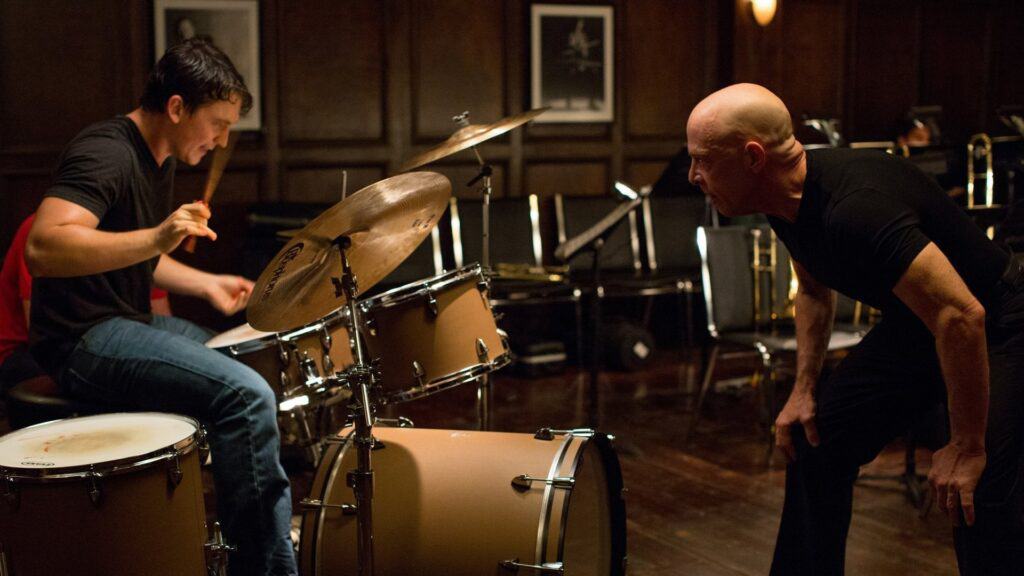
Chazelle does an excellent job in creating a uniquely intense environment where you are plunged into the competitive world of music of desperately rising artists, literally feeling the presence of a demanding, vulgar and abusive mentor pushing his students to the extremes, in particular Andrew Neiman who seems to have the passion and audacity to follow through with his ambitions. Benoît Sourisse and André Charlier’s Multiquarium Big Band carefully navigate the trepidations that come with competitive performance in live music and the urgency and tenacity that Fletcher espouses on Andrew and fellow classmates.
The first instruction Fletcher gives Andrew as a mentor is to show up at 6am on the dot, the following morning, ready for practice. Later that night he goes to the theatre and reluctantly asks out a girl Nicole (Melissa Benoist) working at the cinema for dinner. She teases him before saying yes and quite quickly you can notice a shift in Andrew’s mood. Not only did he manage to get offered a chance at working with a respected conducting professor and pursue his mighty dreams as a Drummer but also scored a shot with a pretty girl he fancies. Everything is going in his favour. The following morning he wakes up and it’s minutes after 6am, he realises he’s late for practice and hurries unprepared for what’s to come. He finally reaches the room and finds it to be completely empty. Wondering if he’s in the wrong room only to check it was the correct place. He realises practice doesn’t start till 9am. This is the reality of being given a chance by Fletcher. You arrive 3 hours earlier than everyone and practice all morning to get ready for the actual session. It’s a reminder that no matter how hard you try, there’s always someone who is one step ahead of you. That’s the message Fletcher is sending to Andrew: if he seriously wants to make it as one of the greats, he has to be willing to do what no one else would. Arrive earlier than everyone and stay later than everyone. Only the very best or should I say, committed, hard working artists to the point of method are able to take this approach in life. This sums up everything cynical and methodical about how Fletcher perceives art and music. You are alone in the morning and at night. To become great you must show singular commitment and forsake everything and everyone else.
One of the most fascinating aspects about Whiplash is the idea of ambition getting in the way of your personal life. By pursuing your dreams, you have to be prepared for losing everything and everyone in your life to get there. The journey is a lonesome struggle to achieve artistic heights only possible by personal sacrifice. Andrew takes this to heart in many ways and immediately takes action; finding transportation cost him time so sleeps in the training room, breaking up with his girlfriend Nicole as he wants to give all his time to practise, and even distancing himself from his family who doesn’t see eye to eye with his worldview or commitments as a musician. He believes giving up these relationships will guarantee him success. That they are ‘factually’ hurdles preventing him from achieving greatness. It’s a damning statement that is drilled into so many artists. That to pursue something you must do it alone. A pessimistic and tragic way of perceiving art and the very essence of ambition. To be perfect in your craft you have to be insane enough and willing to do whatever it takes to get to the top while embarking on a quest of solitude.
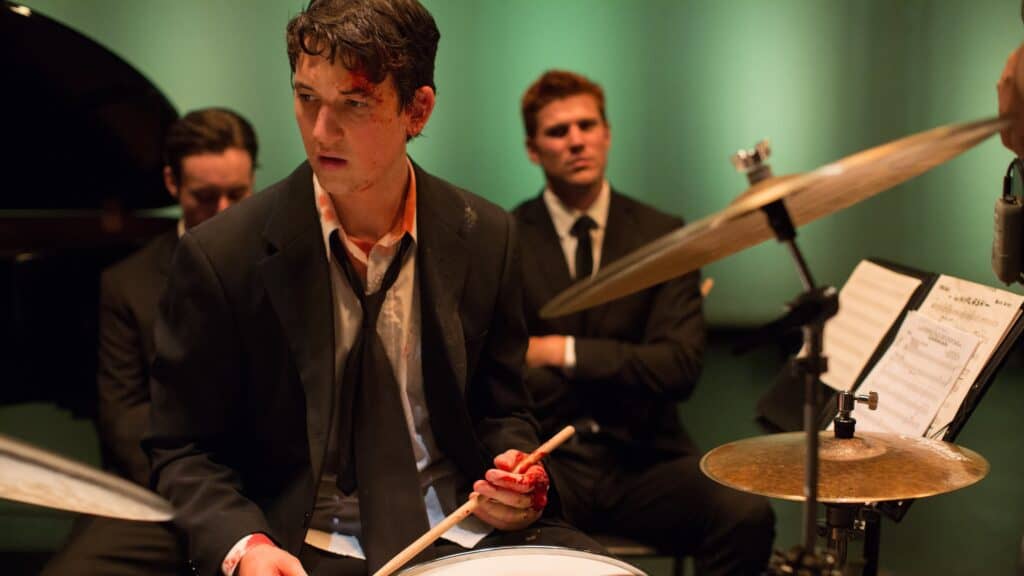
But why is Andrew even going to these lengths? His family doesn’t acknowledge or respect his efforts and accomplishments enough, relative to his brothers who have gone down traditional routes of becoming successful as athletes or academics. He seems to strongly oppose his father’s mentality of being open to other options in life. To Andrew, there is no settling for less and being content with an ordinary path to life or giving up on your dreams. He is of the belief that he was meant for better things and as long as he is capable, he will keep pursuing the void he so desperately wants to fill. This is where Fletcher plays a part in Andrew’s transformation. All it takes is the need for the validation of one person to push yourself to become a monster in the hopes of becoming a star. Andrew can’t bear the thought of Fletcher not respecting his talents and deeming him unworthy, Fletcher’s opinion matters more to him than his own. So Andrew lights himself on fire to fuel his ambitions and dreams, fixated on Fletcher’s approval, willing to accept any risk, even his own life to win him over. He abandons his family, cuts ties with a girl that seemed to love him and makes it his sole mission to be chosen as the core drummer by Fletcher at the cost of his physical and mental health. In Fletcher’s eyes, no one so rarely talented and committed to becoming great would ever be discouraged by life’s setbacks or his methodology as a highly disciplined, downright punishing teacher who only looks for the very best and demands nothing less or face total humiliation. Charlie Parker, one of the most legendary Jazz musicians is often referenced throughout the film to discuss the core themes. Andrew looks to him as his source of inspiration, Fletcher cites him as an example of the uncompromising willingness needed to become great, and to justify his own methods as a teacher, Andrew’s father Jim (Paul Reiser) on the other hand, believes Charlie’s obsession with music is why he became a heroin addict and died young, using this reason to request Andrew to give up on his dream. But there’s no evidence to suggest being obsessed with music results in such a fate.
While Fletcher is a monster in many ways with unacceptable methods of teaching, he is still a human with his own vulnerabilities and there is clearly a tinge of pain underneath as he struggles to find someone to match his wavelength and understand his obsession. This sadness only grows as he learns his former pupil committed suicide after struggling with mental breakdowns and the stress that follows as a consequence of learning under Fletcher’s tutelage. This only exacerbates Andrew’s dissatisfaction with Fletcher’s methods after constant taunts and verbal attacks that even insult his family, with several punishing rounds of drumming to instigate constant distress. The two clearly don’t see eye to eye after numerous disagreements about the role of the core drummer and who it belongs to, even getting to a point where Andrew turns up late to the competition but forgot his drumsticks so Fletcher refuses to let him play, causing Andrew to retaliate and impose himself to perform by promising to return with the sticks by the time the showing starts, resulting in a sudden car crash and Andrew walking on stage bloodied from the accident, nevertheless continuing to be ready to perform. Everything falls apart and this leads to an eventual fight on stage between Andrew and Fletcher. It doesn’t end there as Andrew, weeks after getting expelled from Shaffer, becomes the reason Fletcher loses his job as a teacher due to his father getting in touch with the lawyer that represented Fletcher’s former student Sean Casey, in which he finds out that he died through suicide due to depression and sever anxiety rather than the lie that was fed to Andrew earlier about dying from a car accident.
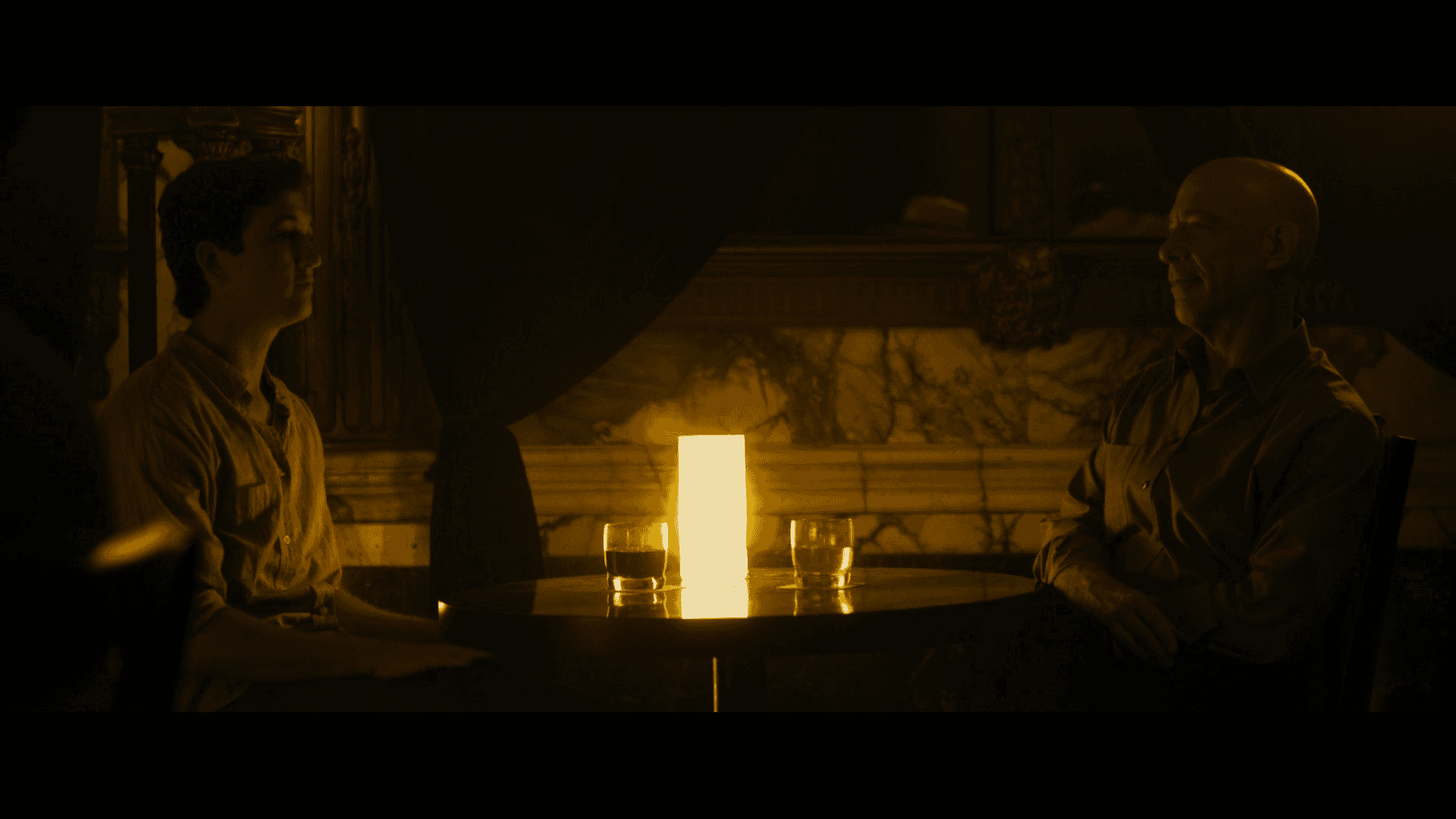
All of this leads up to a key scene where Fletcher is performing the piano at an underground Jazz club, eventually noticing Andrew amongst the crowd, they have a regular conversation over a drink for the first time, where Fletcher admits his methods were harsh yet believes it was necessary to get the most of his students. You realise that these two individuals have more in common than they seem to think. One is a tired musician desperate for someone to rekindle the Jazz he loves and the other is an upcoming musician begging to be that person to restore Jazz to its former heights. Fletcher expresses his disappointment, “There are no two words in the English language more harmful than ‘good job’.” This phrasing is crucial because it shows that Fletcher, just like Andrew, cannot settle for anything less than maximum effort. To them, 120% is the standard to operate in life as an artist to truly make a difference and create a name for yourself in history. It’s a poignant moment that comes rare to these stubbornly forward characters who seek only gain as they strive for perfection. This understanding compels Fletcher to invite Andrew to perform for his band at the JVC Jazz Festival which he accepts. Fletcher soon finds out during the final performance of the film that Andrew was responsible for costing him his job so decides to change up the piece entirely to something Andrew is not familiar with and sabotage him as payback for costing him his work. It shows how petty and selfish Fletcher can be, even deliberately risking his own chances in a major competition just to get the satisfaction of embarrassing Neiman in front of everyone to make it even. A frustrated Andrew walks off midway to his father, before returning to the stage and playing to his own beat, shocking both Fletcher and his father as he performs a solo act for the ages that even catches Fletcher off guard, realising that Andrew may just have what it takes to be the perfect musician. At last, by the end of the film, Fletcher has finally found his match. A monster of his own making. A product of Fletcher’s warped, misguided intentions. Someone who is willing to forsake his own safety, disregard his relationships and give all his time to his craft, destroying his own sanity to do the one thing he loves more than anything, play the drums. Andrew at this moment in time is who Fletcher was looking for all these years; someone obsessed enough to do whatever it takes to become great. Their eyes finally cross paths as they grin in recognition of each other’s newfound understanding of each other. Limits have been surpassed. Boundaries have finally broken. The rest of the audience and the musicians no longer matter in this culminating moment. It’s just Andrew and Fletcher in the room. Acknowledging each other’s presence, ‘I see you now’. But this also proves how abuse enables self-destruction. Abuse is power and the cycle continues through Andrew. His father sees his son’s soul die at this moment.
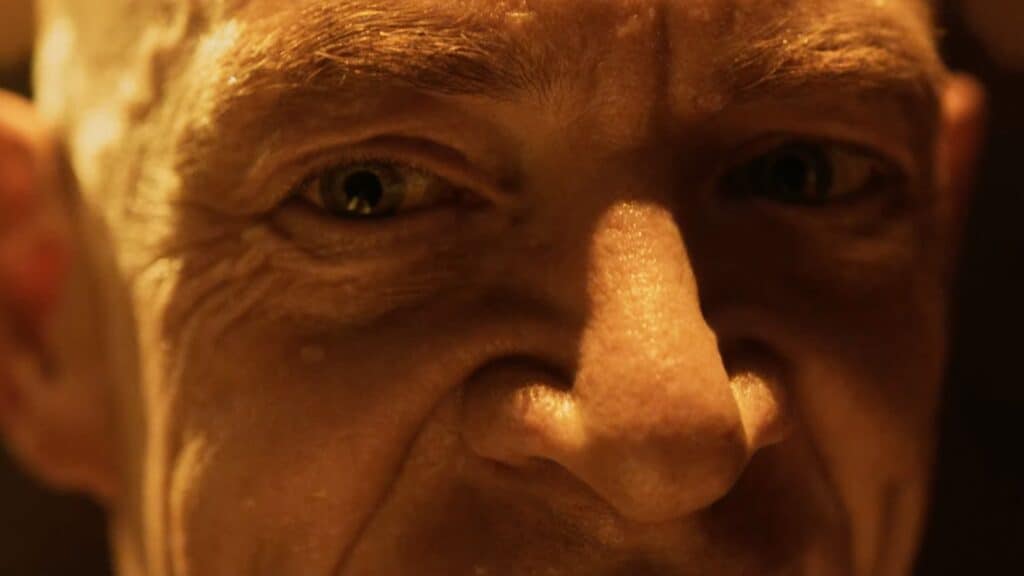
Fletcher’s rigid methodology runs counter to the heart of Jazz as it’s known to the world on large. Ironically enough, it’s only when he spitefully attempts to sabotage Andrew that they stumble upon true Jazz in a trial by fire and finally match each other’s wavelength. They latch onto a found treasure known only to them in the chaos of that moment. The discovery that is so quintessential to free form Jazz. This showcases the inherent faults to Fletcher’s music ideology. He’s a true old head and preservationist, which probably plays into a lot of the animosity he has for the youth he tries to pass the artform on to as he knew it. The thing about art though, is that Fletcher’s perception of great music or a musician is painfully flawed. What makes art and music great isn’t how perfect it is. You don’t truly break boundaries by doing the same old music but just better than everyone else. You do something different, create your own unique voice that only you can. It’s the imperfections, inserting your own life experiences, buried trauma and the passion to inspire in the moment, facing adversity and encouraging improvisation that make us who we are. What makes Fletcher shine in this film is how little we really know about him yet there’s still clear hints to be able to suggest what kind of person he is, and how he grapples with his own contradictory beliefs in relation to music and the legacy of Jazz. Maybe he was there at 6am sharp but chose to leave since Andrew failed to show up on time. It wouldn’t be surprising given the fact he arrives so punctually at 9am when class officially starts. Learning more about him is as much of a thrill as the film.
Ultimately, there is expert attention to detail given to every necessary element to amplify the core themes of this story. Every breath, blood, sweat and tears are accounted for. Regarding the technical aspects, Whiplash is a film of excellence. Damien Chazelle confidently directs with precision and style that masterfully synchronises every element with Tom Cross’s sharp editing, Sharone Meir’s harshly striking yellow infused cinematography and Justin Hurwitz impeccable score to amplify this character rich, tremendous thematic piece. J.K. Simmons performed with sheer brutality, and unwavering conviction, giving arguably the finest supporting actor performance since Heath Ledger in The Dark Knight. The final 15 minutes or so is engraved in contemporary cinema.
Whiplash is a star-making display of monstrous dedication to the art of perfectionism, and the sacrifices people make in their self-destructive quest of greatness. This is an intensifying cautionary tale about the extent an abuser can take control of their victims’ lives. Andrew’s mistake was conflating Fletcher’s approval with his own self worth and progress as an aspiring musician. What does it mean to strive for perfection? Is it worth it? After all, legacies are not promised. I’m still quite new to the scene when it comes to Film in Concert events. But for a film where music is so fundamental to its core, it felt like seeing the stars align as a film so committed to pushing beyond what’s expected realises its full potential. I think it is astounding how musicians on stage can perfectly synchronise a live performance with the film’s timing, some scenes pull you in and make you forget you’re even in the room. Music becomes the focus and your hearing is heightened to a new degree as all other senses become fleeting with this transfixed sensation. In a way it is like seeing a Shakespeare Play performed in a West End Theatre. Sure, I could have a great time at home or even a regular cinema screening seeing the same film. But sometimes, it’s worth treating a film with the grandeur and speciality that it is. This film is delivered in epic proportions elevated to artistic and emotional heights only possible through the art of concerts and live performances.





